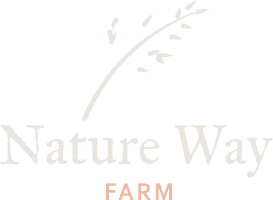Monthly sustainable ethical meat boxes
of your choice
- healthy and sustainable 100% grass fed beef and 100% grass fed lamb
- free range pork from pigs roaming in woodland or in pasture
- animals raised to beyond organic standards
- free delivery in Milton Keynes or courier delivery UK mainland
How it works
1. The land is restored
Our farmers along with their animals restore their land. They create a healthy soil. More habitat for wildlife. They sequester carbon dioxide into the soil to slow down global warming.
2. Abattoir and butcher
When the grass is at its best, mature animals go to a small abattoir, and they are dry aged (beef and lamb). A family butcher cuts the meat up and packs it. We collect and freeze the meat.
3. You buy
You order a monthly meat box of a size you like. You can tell us whether you not want some meat (beef or lamb or pork). You get an email with the default meat cut choices for the month, you can change these if you wish. Your box arrives.
4. You enjoy
Your first meat box will contain recipe cooking suggestions. So you can cook delicious meals super easily. Just get inspired from the list of ideas and get cooking.
5. Another box arrives 4 weeks later
1 week before your next delivery is due, we send you a default meat selection for your next month. You can change if you wish. Your box arrives.
You're in charge of what's in your meat box
The meat box is tailored to suit you, you’re in charge of what is in your regular meat box.
You’ll never receive meat that you don’t want (we hate waste of any kind, an animal’s life in particular).
Wait for an email with a meat selection to pick from, after you order.
What meat types you can have in your meat boxes
100% grass-fed + organic beef and lamb
More nutritious, and managed so that their impact is beneficial to the land and helps to capture carbon in the soil to help to slow down global warming and provide ecosystem services.
It takes 8-9 months longer to finish our beef this way, and 6 months longer to finish our lamb.
But the taste difference is well worth it.
See for yourself how and why our beef is different
Check out video about our 100% grass fed beef.
Pastured chicken
Proper outdoor chicken. Moved daily to fresh piece of pasture for a constant source of fresh grass and insect.
The resulting meat of these much loved birds is beyond any chicken you have ever tasted.
See how our pastured chickens live
Check out video about our proper pastured chicken.
Woodland pork
Our rare breed Large Black pigs are renowned for their flavour. We keep them in our woodland, and rotate them through it regularly to give them plenty of greens, berries, nuts and insect.
It’s the most ethical (and probably the tastiest) pork you can find.
See how our woodland pigs live
Check out video about our proper free-range woodland pigs.
Pastured duck
We also rear ducks on pasture. Like our chickens, they are moved daily to fresh piece of pasture. We also provide them with bathing water as they love to wash and clean themselves.
See how our ducks live
Check out video about our pastured ducks.
What is so different about our meat?
High quality and tasty
Our beef and lamb are 100% grass fed. It has been through its best season of lush grass. Because we want to give you the maximal nutrient benefits. Our meat is dry aged (21-28 days beef, 10-12 days lamb) for maximum flavour and tenderness. And, we never ever use any chemicals on our land, medicines for our livestock, not even wormers.
Regenerative
We do not stop at sustainable, or sustaining what we have. The way we manage our animals improves land. Regenerates it. The soil carbon increases, as does biodiversity. Our land is able to provide food for you in the extreme weather conditions we are facing these days. Because our soils are getting healthier and healthier. They are more fertile and capable of holding huge amounts of water.
Good for the planet
How can red meat be good for the planet? It is the way we manage our animals that makes a difference. We are stimulating grasslands to sequester CO2 from the atmosphere back into the soil. Our land is becoming a carbon sink. You can finally buy meat that is slowing down global warming. Not causing it.
Wildlife-supporting
Healthy soil promotes high biodiversity. Our management allows growth of tall meadows. 90% of our land is free of livestock at any one time. Wildlife is not disturbed. It has a place to live. And thrives. In the tall meadows full of variety of grasses, herbs and flowers. Our farmers also plan their grazing around wildlife hot spots so it can express itself.
Ethical
Our farmers love caring for their animals and their land. Their animals’ needs come first (sometimes even before their children’s). Our farmers make sure their animals never experience fear and so live a happy and content life. Our livestock goes to small local abattoirs. Here, they are treated respectfully and calmly. We celebrate the life of our animals and are grateful for what they are giving us.
Ready to support farming that cares?
Who we are
We didn’t start as farmers – but as conscious consumers, just like you.
We were fed up with the current food choices and destruction of our countryside as a result of producing food. When we discovered a way of farming that is the opposite, we wanted to share it.
Sustainable food that is good for the planet exists.
